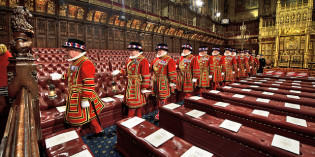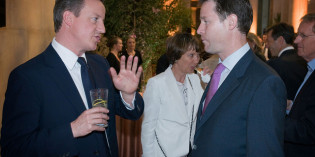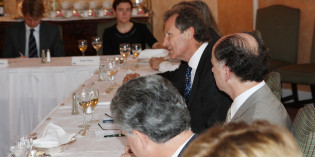Tag: Stephen Crone

The UK can learn from Canada in reforming trade union and corporate funding of parties
This morning the GMB trade union announced a significant cut in its funding of the Labour Party, following Ed Miliband’s proposals for reform of the party’s links with unions. In previous research for Democratic Audit, Stephen Crone examined how party funding had been reformed in Canada, which included a ban on trade union and corporate […]

In the representation of women in political life, the UK continues to be outperformed by other democracies
In the 2012 audit of UK democracy, Stuart Wilks-Heeg, Andrew Blick, and Stephen Crone considered how women were represented in public life. They found increased participation of women in government, although more recently progress has gone in reverse. Movement towards greater gender equality in the make-up of the House of Commons has also been slow. Among the […]

Parliament has relatively weak war powers compared to legislatures in other democracies
Parliament is today being recalled from its summer recess to discuss the possibility of British military intervention in Syria. In the 2012 audit of UK democracy, Stuart Wilks-Heeg, Andrew Blick, and Stephen Crone considered Parliament’s powers in this area. Although Parliament has debated Britain’s involvement in recent conflicts it has no formal role in decisions over whether to deploy military force. In this […]

Unfinished devolution has created constitutional imbalances in the UK
In the 2012 audit of UK democracy, Stuart Wilks-Heeg, Andrew Blick, and Stephen Crone considered how effectively the UK constitution matched the territorial structure of the UK. Following England and Scotland’s national football teams facing each other in a rare match at Wembley, this post draws on their analysis to explore how the UK’s nations have fared in constitutional reforms of recent […]

The unreformed House of Lords is already the largest parliamentary chamber of any democracy
The appointment of 30 new peers to our unreformed House of Lords was announced this week. In the 2012 audit of UK democracy, Stuart Wilks-Heeg, Andrew Blick, and Stephen Crone discussed the composition and role of the upper chamber. They highlighted how the UK is almost unique among established democracies in possessing a parliamentary chamber that is mainly unelected, and set […]

It remains to be seen whether Parliament is cut out for coalition
The long periods between 1945 and 1970, and 1979 to 2010 proved that the British political system is adept at producing stable one-party Government. Now though, this looks set to change, with long-term polling trends suggest that coalition could become the rule, rather than the exception. While the current Conservative-Liberal Democrat coalition has shown itself […]



 Democratic Audit's core funding is provided by the Joseph Rowntree Charitable Trust. Additional funding is provided by the London School of Economics.
Democratic Audit's core funding is provided by the Joseph Rowntree Charitable Trust. Additional funding is provided by the London School of Economics.